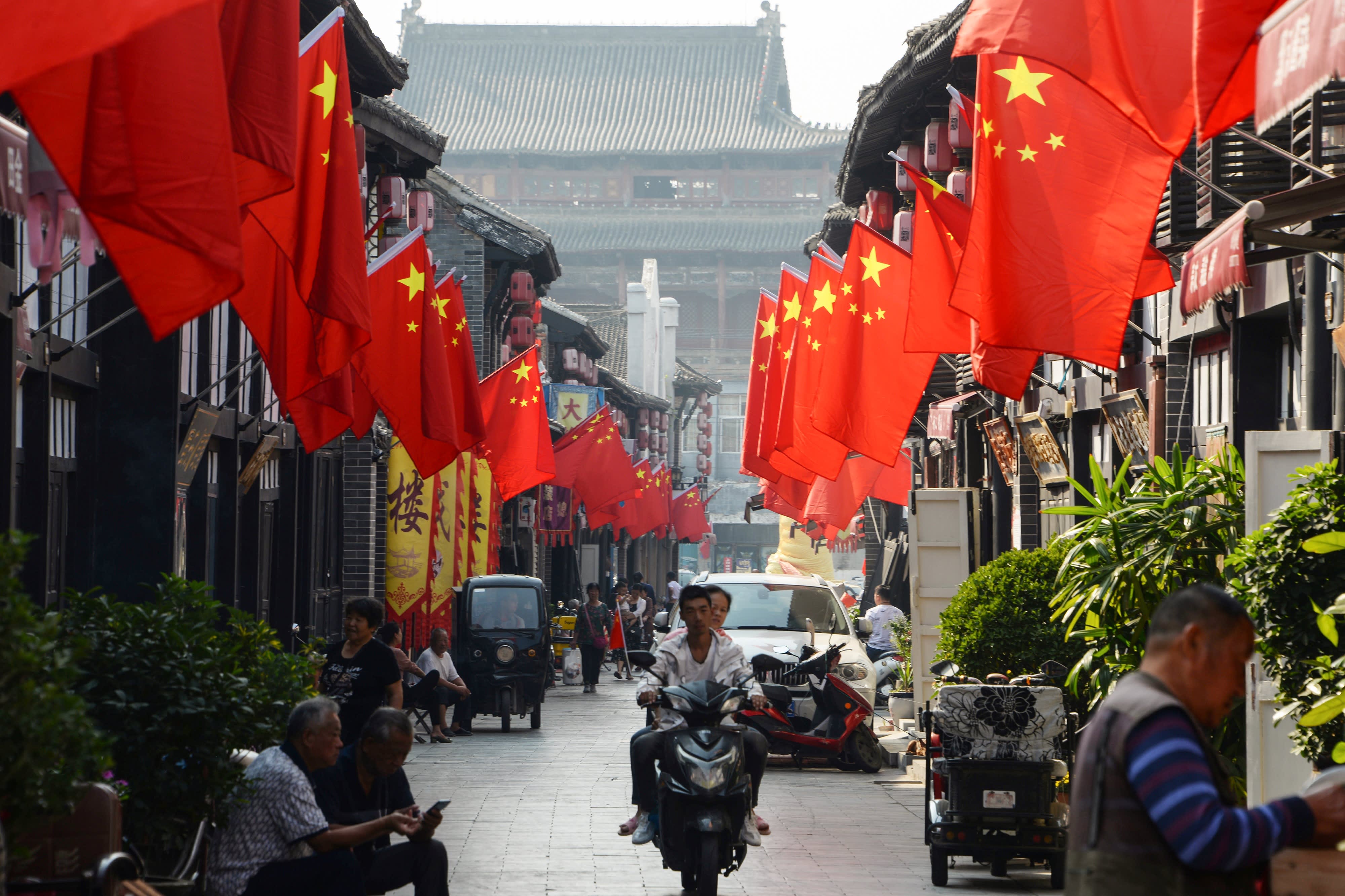
China’s central bank unexpectedly cut rates on Tuesday, as policymakers continued to ramp up support for its struggling economy.
Early Tuesday, the People’s Bank of China trimmed the interest rate on 401 billion yuan ($55.25 billion) worth of one-year medium-term lending facility (MLF) loans from 2.65% to 2.50. It was the second rate cut in three months.
The move came just before China posted largely disappointing July data. Industrial output rose by 3.7% in July from a year ago, below the 4.4% increase analysts had expected, while retail sales also rose at a slower pace by 2.5% last month.
Then in the late afternoon, the PBOC cut short term rates. Overnight, seven-day, and one-month standing lending facility rates were each trimmed by 10 basis points to 2.65%, 2.8% and 3.15%, respectively.
China is facing a “confidence crisis” as Beijing’s policy delay is being perceived as “inaction” to spur growth, according to an economist.
“There’s no hiding from the fact we’ve had a very horrible July — not just the data we’ve seen coming up to this, but also today’s data,” Louise Loo, lead economist at Oxford Economics, told CNBC’s “Street Signs Asia” on Tuesday.
The latest data comes on top of a slew of weak economic numbers over the past week including sluggish trade and consumer price numbers and record-low credit growth.
The lessons from the past two month “is that policy delay — markets are essentially seeing it as policy inaction,” Loo added.
“In a crisis such as this … you can’t really call it a consumption crisis or investment crisis. It’s really a confidence crisis,” she noted, adding the best way to tackle it “is to be very quick on the stimulus.”
China’s policymakers recently announced a raft of measures to boost consumption, private sector investment and foreign investment. Still, the overall approach to additional stimulus has been cautious.
The move toward stimulus has been “more targeted, more specific,” said Loo. “They’ve very clearly wanted to target the big ticket items in terms of consumption.”
“Is that really enough to lift consumer sentiment, business sentiment? I really don’t think that they’ve been doing enough in that front.”
More rate cuts to come?
In addition to the rate cut on Tuesday, the central bank also injected 204 billion yuan through seven-day reverse repos, cutting borrowing costs by 10 basis points to 1.80% from 1.90%.
“We expect 1yr and 5yr loan prime rates (LPR) to be lowered by 15bps accordingly on 21 August (next Monday), but this should be far from being enough to boost growth,” Goldman Sachs analysts wrote in a note.
“We continue to expect more easing measures in coming months, with a combination of monetary, fiscal, housing and consumption, although the magnitude of stimulus should be smaller than previous easing cycles.”
Hao Zhou, chief economist at Guotai Junan International, echoed a similar sentiment.
“The market will question whether the LPR rate for the five year, which is the important kind of benchmark for the mortgage rate will be cut further or cut more aggressively,” he told CNBC’s Capital Connection on Tuesday.
“That’s the most important thing for the market to watch — the impact or the influence on the property market for now,” he said, adding that’s critical to stabilize economic growth.
China is grappling with an ongoing slump in its massive real estate sector that has taken a toll on its economy. Property market troubles have come to the forefront again with developer Country Garden now on the brink of default.
“The nervousness that investors have around Country Garden is not so much the problems that it’s facing. But the fact that the government has been quite silent on that,” said Loo, adding the property sector is headed for “a long overdue correction.”
China’s post-pandemic doldrums
After an initial rebound from the pandemic earlier this year, China’s economy has come to grips with long-standing problems and slowing global demand for its products.
Exports plunged by 14.5% year-on-year in July, following a 12.4% drop in June. Factory activity contracted for a fourth straight month in July, according to an official survey.
Overall, China’s consumption driven story of economic recovery “is pretty much over,” noted Loo from Oxford Economics.
“If you look into the two quarters ahead, the government is very much focused on lifting the industry production, lifting some of these business sentiment. So really, I think that pivot is going to come into play.”
“That’s something they will have to grapple with further down the road.”
— CNBC’s Evelyn Cheng, Clement Tan and Lim Hui Jie contributed to this report.
Source: CNBC
